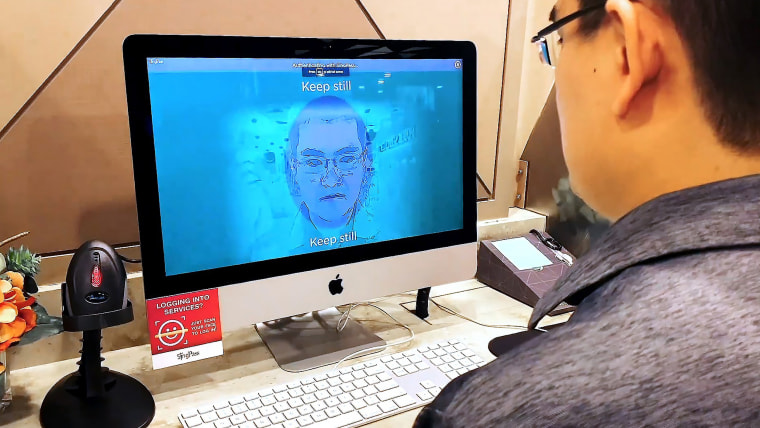SINGAPORE — Singapore already boasts one of the world's most advanced national digital identity programs, SingPass, which residents can use for more than 400 digital services, including accessing tax returns and applying for public housing.
Now, residents can use it with just their face.
Singapore's 4 million citizens will be able to access government services and more through a new facial verification feature in its national identity program, the country announced in July. Dubbed SingPass Face Verification, the new feature allows users to securely log into their accounts without the need to remember passwords, and is meant to be used in public kiosks, home computers, tablets and mobile phones. It was also tested at a local bank in July.
The rollout is part of the Singapore government's 2.4 billion Singapore dollars ($1.75 billion) Smart Nation initiative, launched in 2014, under which the country has revamped its online government services, such as providing access to open data, adding interconnected lampposts with sensors and introducing cashless payment systems. The island-state boasts a robust 4G wireless network and about 1.5 smartphones per person, according to the country's telecommunications regulator, the Infocomm Media Development Authority.
Face recognition and verification technology has advanced quickly in recent years, powering everything from Snapchat filters and concert security to software that can unlock iPhones and make sure people are wearing masks. In China, facial recognition technology has become a significant part of the country's security and surveillance system.
Singapore's rollout of facial verification to SingPass marks one of the biggest efforts yet to weave the technology into everyday life. But it comes with warnings from privacy advocates and technology watchdogs about the risk of abuse.
Indulekshmi Rajeswari, a privacy lawyer and LGBT activist in Singapore, said the benefits of facial recognition have not yet been explained clearly by the government, noting that the government is exempt from current data privacy laws.
"Even if we say that rogue government employees are not the problem, I can think of a lot of problems where the whole of the government will find ways to legally misuse the technology to surveil their citizens," she said.
Singapore's Government Technology Agency (GovTech) has said that the data collected is "purpose-driven," meaning it is collected only for a particular transaction, and that the selfie data stored on secured government servers is deleted after 30 days.
The new face verification system could also be used in private sector organizations and in education, where "proof of presence is required when a student takes his or her examinations." That said, no personal data will be shared with the private sector, GovTech added.
The agency also mentioned that the deployment of the facial verification feature will allow older Singaporeans easier access to online banking services without the need for managing multiple accounts and passwords.
Singapore's system includes some features to prevent people from trying to hack the face verification technology.
The new system was jointly developed by United Kingdom-based biometric authentication supplier iProov and the Singapore-based digital government service platform provider Toppan Ecquaria. Instead of just verifying the face being presented to the camera, iProov's genuine presence assurance technology uses the screen to illuminate a user's face with a cryptographic sequence of colors, which takes less than 7 seconds. It can be used on any device, as long as it has a screen, including web browsers.
The technology claims to be able to prevent logins made with photographs, masks and deepfakes. It has been tested by the U.S. Department of Homeland Security, the U.K. government as well as the Singapore government. It can also prevent replay attacks, which uses a recording of a person's face to authenticate.
"A deepfaker can't predict the color sequence to put onto their forgery of your face, so it prevents deepfakes too. And of course real, live, human faces reflect the colors differently from photos, screens or masks, so we spot those reliably too," Andrew Bud, iProov's CEO and founder, said.
Besides Singapore, iProov is working to get its system deployed in the United States at land borders as part of the Trusted Travelers program, and is already being used in the U.K. in its immigration and health agencies.

